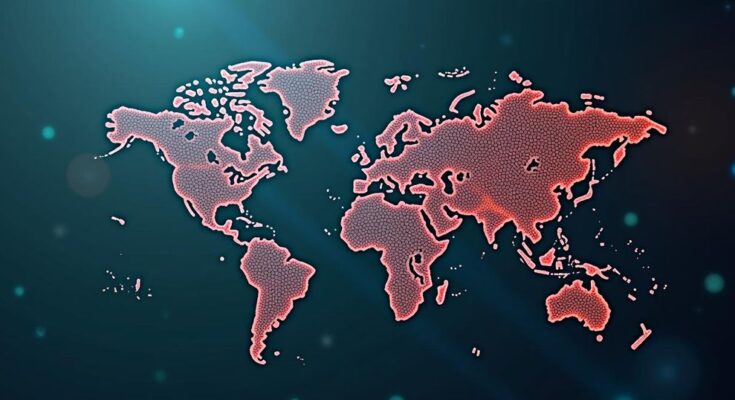Myanmar and China have been identified as having the lowest levels of internet freedom globally, according to the latest Freedom House report. The report indicates a continuing decline in internet freedoms for the 14th year, with significant rights violations occurring in countries like Kyrgyzstan and Iraq. Iceland remains the leader in internet freedom, while the U.S. faces criticism for its approach to internet governance amid electoral concerns.
In a recent report by Freedom House, Myanmar and China are ranked as having the world’s worst environments for internet freedom, marking a significant trend of decline in global internet freedoms for the fourteenth consecutive year. According to the findings released by the pro-democracy research organization, Kyrgyzstan experienced the most severe deterioration in internet freedom, primarily due to President Sadyr Japarov’s stringent controls over online organizing and actions taken to suppress digital media outlets. Notably, the closure of the investigative reporting site Kloop illustrated the government’s efforts to silence dissent, particularly in response to allegations of torture by security forces. The report by Freedom on the Net (FOTN) noted that out of the 72 countries evaluated, protections for online human rights weakened in 27 of them. Myanmar’s situation has worsened markedly under military rule, which is characterized by severe censorship and surveillance practices aimed at stifling dissent. In May, additional government measures were introduced to restrict access to virtual private networks (VPNs), tools commonly used to evade censorship. China’s dismal score is attributed to its robust internet censorship infrastructure, known as the “great firewall,” designed to isolate the nation from external information and prevent access to content perceived as challenging to the Communist Party’s authority. When questioned about the report, Chinese officials dismissed its findings as unfounded and motivated by ulterior motives. Other nations experiencing significant downgrades included Azerbaijan, which is set to host an upcoming United Nations climate summit, and Iraq, where violent reprisals followed online expression of political views. The study revealed that in three-quarters of the nations reviewed, public expression led to arrests and, in some cases, extreme sentencing exceeding a decade in prison. On a brighter note, Iceland maintained its position as the country with the highest level of internet freedom, with Estonia, Canada, Chile, and Costa Rica following closely behind. Zambia stood out for the most significant progress, with a notable expansion of space for online activists. Additionally, for the first time, Chile and the Netherlands were evaluated, both of which demonstrated strong protections for online human rights. In the United States, the report raised alarms about the inadequacy of safeguards against government surveillance and placed the nation at a score of 76 out of 100 concerning the protection of online rights. The study emphasized the manipulation of information during election cycles, particularly as numerous states enacted actions against the use of artificial intelligence in campaigning, leading to a distorted information environment impacting voter decision-making. “In three-quarters of the countries covered by FOTN, internet users faced arrest for nonviolent expression, at times leading to draconian prison sentences exceeding 10 years,” the report concluded. Furthermore, the report observed that more than a billion voters are compelled to make critical decisions in the context of a heavily censored and unreliable information landscape.
The topic of internet freedom is increasingly relevant in today’s digital age, where access to information and freedom of expression are fundamental democratic rights. The Freedom on the Net report aims to assess the state of internet freedoms across various nations. It examines factors such as government censorship, surveillance, and the ability to organize and express dissent online. This ongoing decline in internet freedoms reflects broader trends of authoritarianism and repression in many parts of the world, particularly in nations like Myanmar and China, where governance is characterized by strict control over information and dissent.
The Freedom on the Net report highlights a troubling trend of declining internet freedoms, with Myanmar and China leading the ranks of the most repressive environments globally. The situation in Kyrgyzstan further reveals how governments can stifle dissenting voices, while Iceland exemplifies the conditions that foster a free online environment. As elections prompt concerns about information manipulation and surveillance in the U.S., the findings serve as a call to action for protecting human rights online and addressing the alarming trends affecting global internet freedom.
Original Source: www.aljazeera.com




